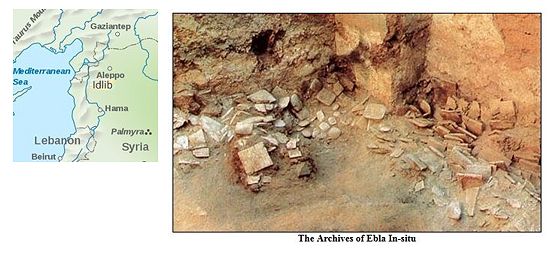

 |
Page
7
|
| Coming back to Europe, in 1968 the lost city of
Ebla was discovered near Aleppo in Syria. In the 70s the Royal library of
Ibbit-Lim, King of Ebla, was unearthed there. It had been burned to the
ground and looted but the clay tablets had survived. There were 15,000 of
them and had been supported on wooden shelves. The way they were found indicated
a systematic cataloguing of the tablets on the shelves.The majority of the
texts in the Royal Archive are related to the Economic and Administrative
details of Ebla. However, the texts included historical information, religious
texts, academic texts, agricultural details, laws and treatises. Of most
interest were the encyclopedias and dictionaries (monolingual and bilingual
– giving the Eblaite usage and the Sumerian equivalent) – a god-send
for researchersl (known as philologists). These are the oldest dictionaries
and encyclopedias in history. The tablets were often a foot long with writing
on both sides The ancient city of Ebla is now part of Idlib (see map). Since the onset of the Syrian Civil War in 2011, the city was taken over by rebel militias and by 2017 became the seat of the Syrian Salvation Government, and there has been widescale looting of ancient sites as a result |